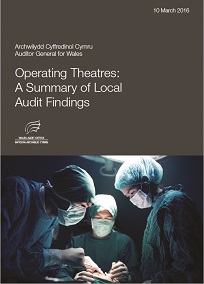News / News review - April 2016
 While health measures in the 16 March Budget appeared to focus on reducing child obesity and supporting some NHS children’s services, chancellor George Osborne also increased employer contributions to public sector pension schemes from 2019. Figures from the House of Commons Library suggest this will cost the NHS an additional £650m a year.
While health measures in the 16 March Budget appeared to focus on reducing child obesity and supporting some NHS children’s services, chancellor George Osborne also increased employer contributions to public sector pension schemes from 2019. Figures from the House of Commons Library suggest this will cost the NHS an additional £650m a year.
Mr Osborne also announced the introduction of a sugar levy, as well as funding for school sport and after-school clubs. Funds generated by the LIBOR inter-bank lending fines will be used to support children’s health services in Manchester, Sheffield, Birmingham and Southampton. Central Manchester University Hospitals NHS Foundation Trust will receive £1.1m, while £700,000 has been allocated to Sheffield Children’s Hospital Charity for the provision of a helipad and a 3T MRI scanner, respectively. University Hospital Southampton NHS Foundation Trust will receive £2m to build a paediatric emergency and trauma department. Birmingham Children’s Hospital Charity will be allocated £700,000 to support its fundraising to transform the hospital’s eye department and create a centre for children with rare and undiagnosed conditions.
NHS staff across the UK received a 1% pay rise from 1 April after governments in the four countries accepted the recommendations of the health service pay review bodies. In addition, staff not at the top of their pay band will be eligible for increments. Those in Scotland earning less than £22,000 will receive a £400 top-up to their pay. In Wales, 7,000 of the lowest-paid staff will also get an uplift to account for the rise in the minimum wage from £7.85 to £8.25 an hour. This will be backdated to 1 January and the Welsh government estimated the total cost of the increases would be £40m a year.
The Department of Health said junior doctors in England will receive the 1% rise and this has been factored into the new contract, beginning in August. However, the doctors still oppose the deal. The British Medical Association said industrial action would escalate, with a full withdrawal of labour for 18 hours on 26 and 27 April in response to the government’s decision to impose the new contract. The Department said the action put patients at risk.
The medical royal colleges called for the action and contract imposition to be suspended and for both sides to resume negotiations. NHS Employers published the new contract in March, with extended pay protection for some junior doctors. The BMA also launched its judicial review challenging the lawfulness of the decision to implement the contract without agreement.
The government desire for a move to seven-day services and how it would affect juniors’ pay and working patterns underpins the dispute. The BMA believes more doctors are needed for a seven-day service and Royal College of Physicians president Jane Dacre raised concerns that trusts are struggling to fill existing physician vacancies and gaps in rotas were emerging. RCP research found four in 10 advertised vacancies were unfilled last year, while one in five consultants reported gaps in junior rotas.
Concern was also voiced over GP numbers. The Commons Public Accounts Committee called for a review of general practice in England amid concerns that recruitment and retention problems mean there are not enough GPs to meet demand. The committee said demand had outpaced capacity over the last decade and access was too dependent on where patients lived.
Southend University Hospital NHS Foundation Trust is to receive additional support to help turn around its financial position, Monitor said. Following an investigation into the trust’s finances, the regulator said it was facing a £19.5m deficit. Monitor said the trust would set out how it will recover its position in the short and longer term. The trust has also agreed to develop an action plan to improve its cost recording following a separate investigation.
Two other FDs are to receive support to recover their financial position. Monitor said Liverpool Women’s NHS Foundation Trust would need help to tackle its predicted £7.3m deficit. The regulator recognised the trust’s work to address its financial problems, but support was needed to recover its position and continue to provide quality services to patients.
The regulator is also helping Doncaster and Bassetlaw Hospitals NHS Foundation Trust to improve its financial management and develop its long-term plans for financial sustainability. Monitor said the trust’s financial position had deteriorated rapidly since last October, when it discovered it had incorrectly reported its financial position for at least 12 months.
The government introduced legislation to allow the Care Quality Commission (CQC) to raise fees for its comprehensive inspections. The decision follows a consultation that ended in February. The move will allow the CQC to move to a full cost recovery model from 1 April.
Funding of £10m will be available for the next stage of plans to transform urgent care in Scotland. The delivery plan will be published in the autumn, the Scottish government said, and build on work at eight pilot sites that are testing new ways of delivering out-of-hours services. The funding includes £400,000 for an out-of-hours technology system across Scotland.
The Department of Health has published guidance for clinical commissioning groups and NHS trusts on appointing auditors. From April 2017 the bodies must select their auditors and directly manage the contracts for their audits. The guidance is designed to help with the initial appointments, to be made by the end of this calendar year. It sets out the legal requirements, the National Audit Office code of audit practice and auditor eligibility and a core specification. There is also advice on procurement options and the use of frameworks.
There is ‘considerable scope’ for Welsh hospitals to improve theatre use, reduce late starts and minimise cancellations, according to a report from the Wales Audit Office. The report, Operating theatres: a summary of local audit findings, made a number of recommendations, including improving the reporting of theatre performance, greater visibility of theatre data and introducing a national forum for theatre improvement.
There were developments in Five-year forward view implementation. Details of 44 ‘footprint areas’ where health and social care leaders, organisations and communities are being brought together were published. NHS England also announced moves to keep staff healthier – a key plank of the forward view. NHS providers will be able to earn a share of a £450m incentive fund by helping frontline staff stay healthy. NHS England chief executive Simon Stevens said they must offer these staff a range of support – offering workplace physio and mental health services; taking action on junk food on NHS premises; and increasing staff flu vaccine uptake.
In the media
A Commons Public Accounts Committee (PAC) report on the sustainability of NHS finances brought several requests for an HFMA comment. Policy and technical director Paul Briddock told Hospital Doctor the report echoed something the association had been advocating for some time – a recovery plan that was faster than the current rate.
Additional funding was welcome as it gave providers breathing space, but it did not provide solutions. This would only come through collaboration over a sensible timeframe and with realistic targets. The HFMA supported the PAC call for better data collection to inform more pragmatic target-setting and backed calls to solve wider workforce planning issues instead of the ‘quick fix’ of focusing on agency staff costs.
The HFMA staff attitudes survey was picked up by Accounta ncy Age and Financial Director. The latter reported the finding that only 5% of NHS finance staff feel appreciated by the public, but despite this 64% of NHS financial professionals wanted to spend the rest of their careers there. Mr Briddock (right) told the publication: ‘The need for talented finance staff to help their organisations deliver high-quality services with restricted financial resources has never been higher. In the midst of these financial pressures, those in the NHS finance function are dedicated and ready to meet the challenges head on.’
ncy Age and Financial Director. The latter reported the finding that only 5% of NHS finance staff feel appreciated by the public, but despite this 64% of NHS financial professionals wanted to spend the rest of their careers there. Mr Briddock (right) told the publication: ‘The need for talented finance staff to help their organisations deliver high-quality services with restricted financial resources has never been higher. In the midst of these financial pressures, those in the NHS finance function are dedicated and ready to meet the challenges head on.’
Month in quotes
‘As the largest employer in Europe, the NHS needs to practi se what it preaches by offering better support for the health and wellbeing of our own 1.3 million staff. A good place to start is by tackling the sources of staff sickness absence, including mental health and musculoskeletal injuries, while doing our bit to end the nation’s obesity epidemic by ditching junk food and sugary drinks in place of tasty, healthy and affordable alternatives.’
se what it preaches by offering better support for the health and wellbeing of our own 1.3 million staff. A good place to start is by tackling the sources of staff sickness absence, including mental health and musculoskeletal injuries, while doing our bit to end the nation’s obesity epidemic by ditching junk food and sugary drinks in place of tasty, healthy and affordable alternatives.’
Simon Stevens (above), chief executive, NHS England
‘Operating theatres are expensive to run and there is a lot more health boards can do to ensure their theatre capacity is used efficiently and effectively. Achieving this will have benefits for patients and health boards with fewer cancelled operations and better performance against waiting time targets.’
Wales auditor general Huw Vaughan-Thomas
‘There is a looming crisis in general practice. For too long staffing levels have failed to keep pace with the growth in demand and too little has been done to close the gap.’
Meg Hillier (right), chair, Commons Public Accounts Committee
‘I feel sorry for NHS trusts, I really do. They have created a raft of new posts to meet the rising demands for patient care, only to find there is no one to fill them. If we have neither enough trainees nor consultants to run the service now, how are we going to implement a safe seven-day service?’
RCP president Jane Dacre
Related content
The Institute’s annual costing conference provides the NHS with the latest developments and guidance in NHS costing.
The value masterclass shares examples of organisations and systems that have pursued a value-driven approach and the results they have achieved.